New Delhi: Ahead of Saturday’s Supreme Court verdict on the Ram Janmabhoomi-Babri Masjid dispute in Ayodhya, many WhatsApp group administrators decided to pre-empt hate speech by restricting who could post on them.
Facebook-owned messaging platform WhatsApp has often been accused of being a medium for the circulation of hate speech and communally-charged messages, and the administrators decided to prevent a repeat by changing their settings so that only administrators could post messages.
Administrators taking such action included those in pro-Modi and pro-Right wing groups as well as those set up by residents for easy coordination among themselves.
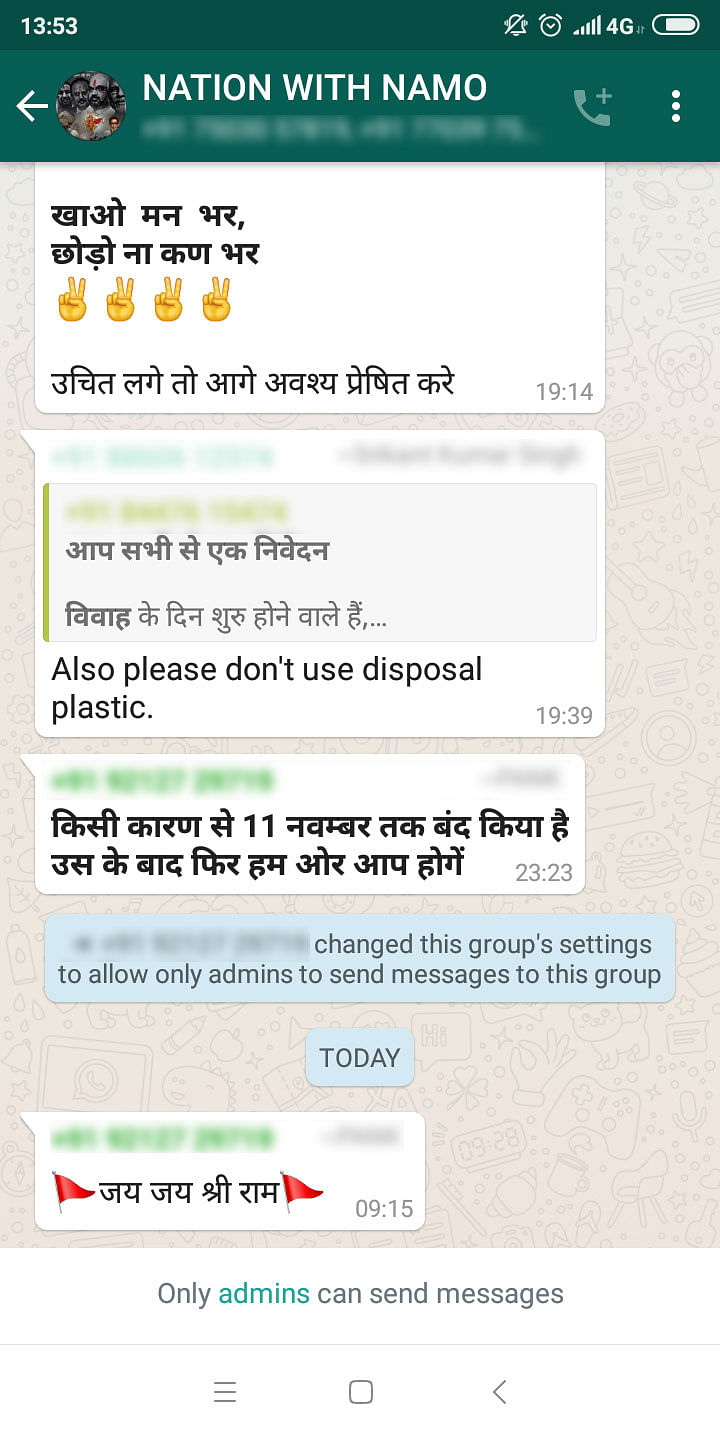
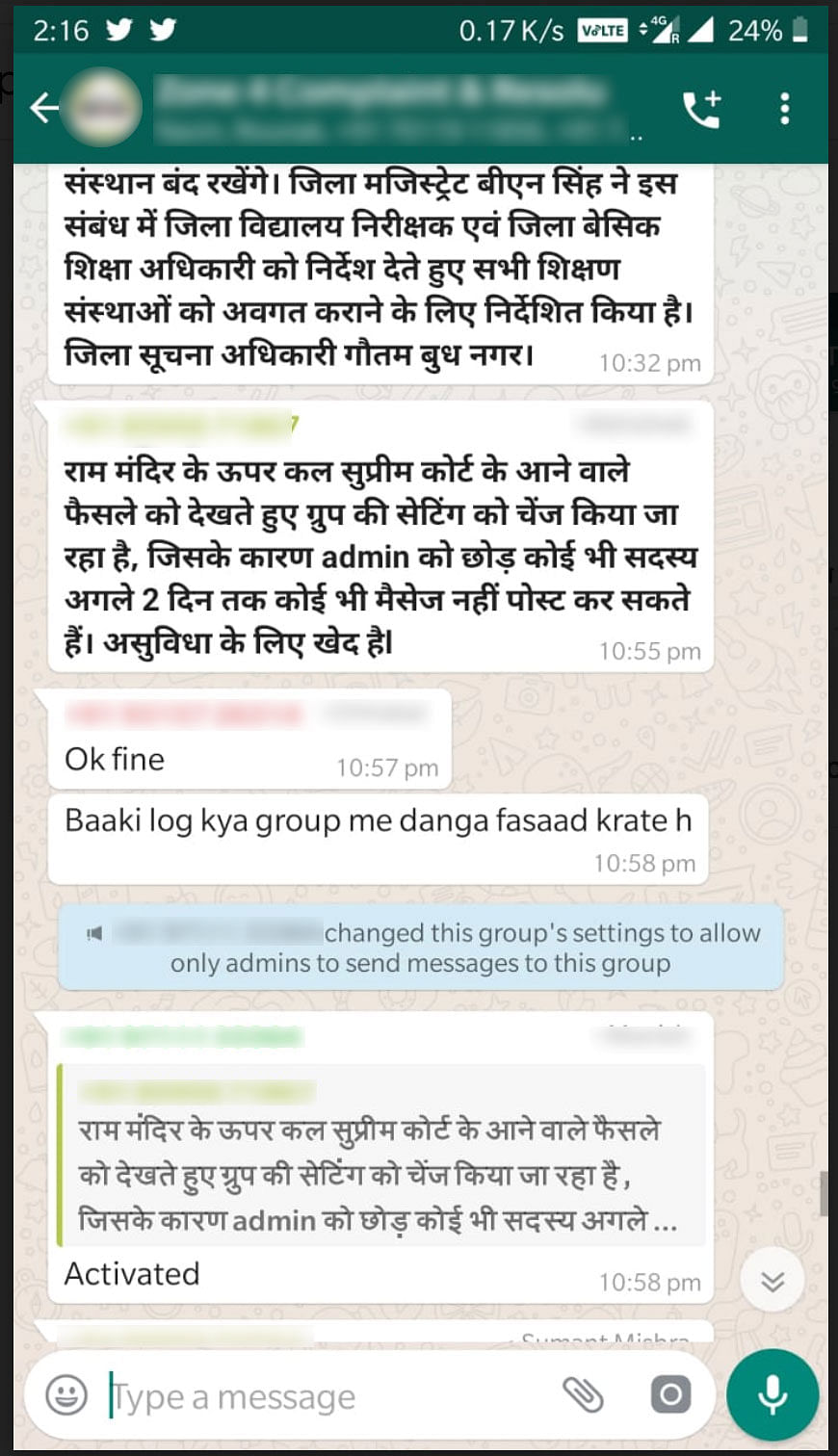
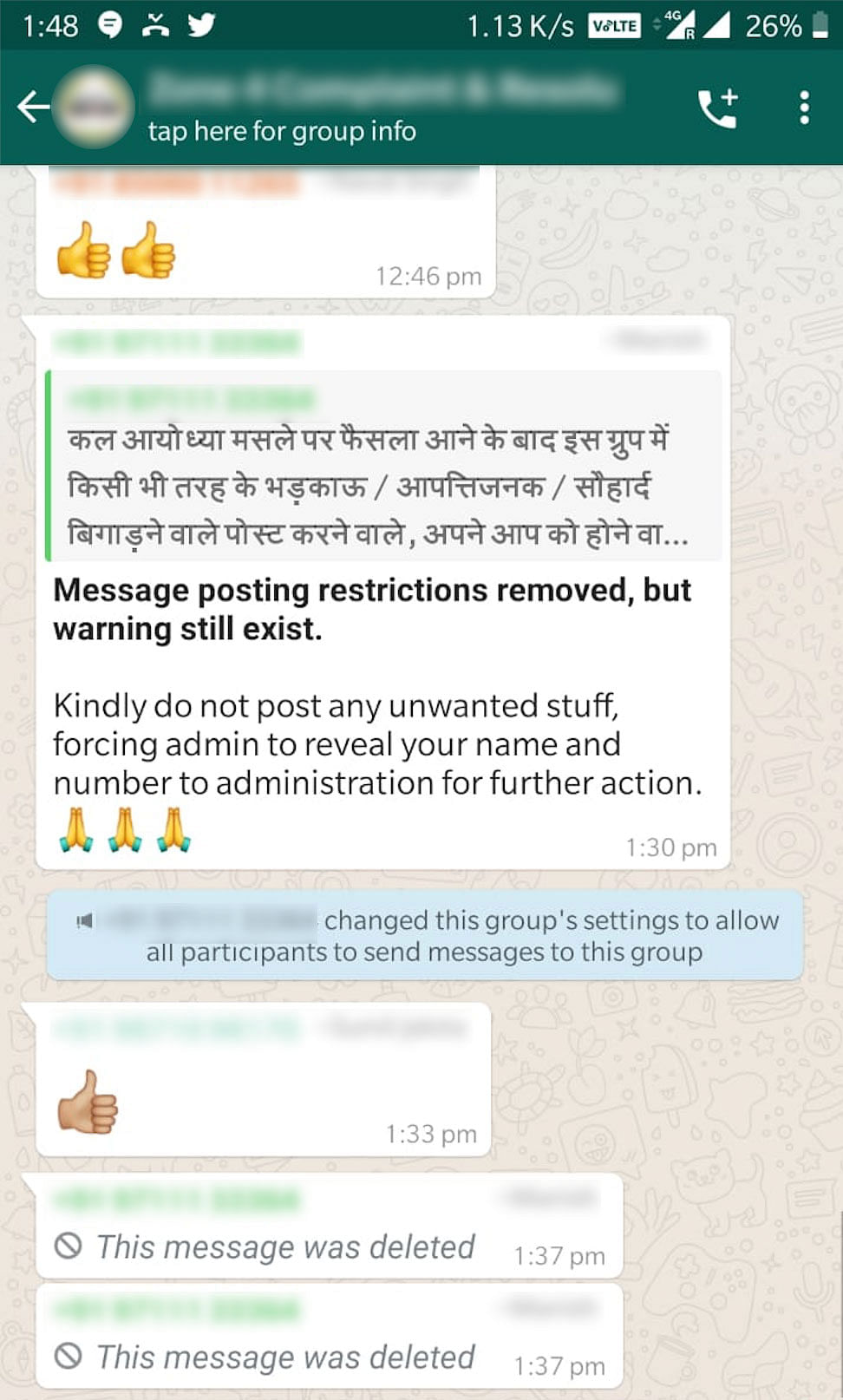
Also read: ‘How does it affect me?’ — outside Delhi’s Jama Masjid, Ayodhya verdict has little resonance
‘Don’t want legal trouble’
The admins likely took this decision to keep history from repeating itself, as some have been arrested in the past for objectionable content. The Indian Penal Code and the IT Act provide for admins of social media groups to face prison time if the messages shared are “religiously or politically offensive”.
“Let’s stop all post for next 24 hours, do not want any legal trouble,” wrote a user belonging to a WhatsApp group set up by residents of a south Delhi colony.
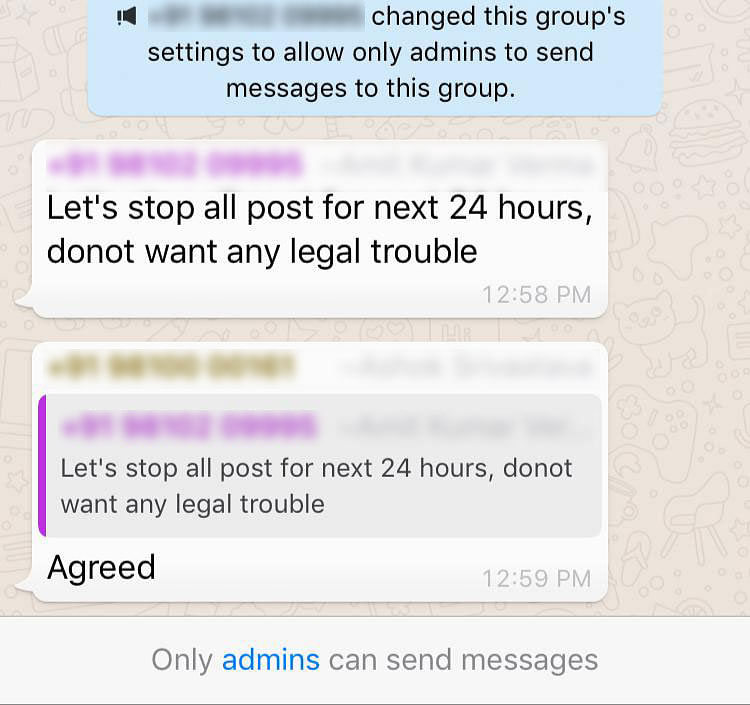
In July 2018, a man was arrested for objectionable content posted on a WhatsApp group because he had been made the admin of the group. The police had deemed the admin responsible for the content posted on the group.
In the same month, rumours and messages spread on WhatsApp were linked to a spate of mob lynchings.
The Ayodhya dispute has always been an emotive issue, and there have been many incidents of violence related to it in the past, including the demolition of the Babri Masjid by a mob of kar sevaks on 6 December 1992.
WhatsApp has also recently been under the scanner for the alleged hack of nearly 1,400 individuals, via spyware called Pegasus. The Indian Express reported last Thursday that WhatsApp had alerted “at least two dozen academics, lawyers, Dalit activists and journalists in India” that their phones were spied upon for a “two-week period until May 2019”.
Also read: ‘I’m jealous of Priyanka’ — how Sonia Gandhi reacted to WhatsApp hack news



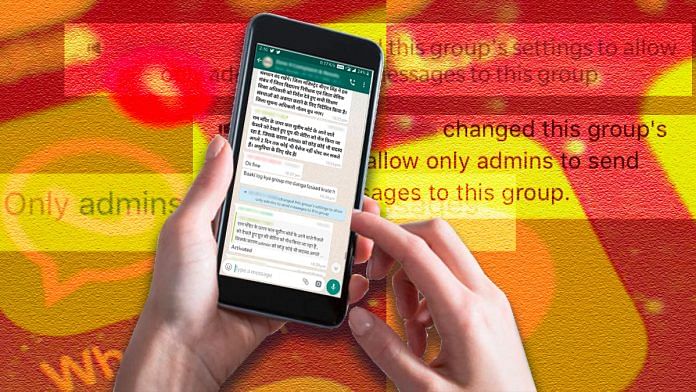



Group me add kr liye jiye please